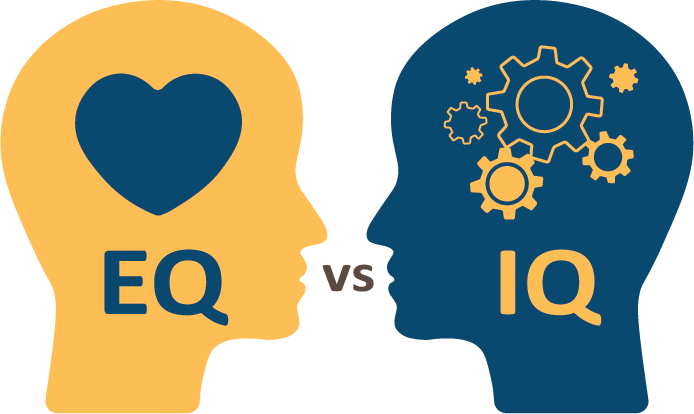

Emotional Intelligence (EI) is the ability to understand your own emotions as well as those of others. People who are aware of their feeling and understand how those emotions influence their behaviour often have high EI. Moreover, they also have the ability to sense other’s emotions through their conduct, which helps them to interact well with other people.
While Intelligence Quotient (IQ) measures the intelligence level of a person, Emotional Quotient (EQ) refers to how well you recognize the emotion in yourself and others,
as well as how you alter your actions and decisions based on that awareness.
IQ defines your ability of reasoning and problem-solving, which is crucial for brain-based activities like logical thinking. In contrast, EQ determines how you express empathy,
handle pressure, cope with crisis and communicate effectively.
Let’s compare a robot against a dog as an example to distinguish between IQ and EQ. A cutting-edge robot clearly has an excellent IQ but might have minimum to zero EQ,
whereas a dog has a much better EQ and depending on their breed, some might possess a very high IQ.
People with high IQ level often do well in school and have great academic achievements. However, EQ is the key when it comes to success in real life.
EI can generate a great influence on your relationships, work performance, and well-being.
In your daily life, EI enables you to slow down your reactions to emotions. If you are the type of person who often verbally attack others when getting angry, EI will be your
solution to stay calm in those moments and let you identify if their behaviour was triggered by an unexpected incident. This gives you an opportunity to adjust your attitude and
respond appropriately. We often judge a situation based on our own standpoint, but EI will let us look at the problem from other people’s perspectives and that might help us
thoroughly understand why our colleagues or friends acted the way they did. This, in turn, allows us to maintain good relationships with people whom we love and care about.
In a company, a good employee is someone who can self-regulate their emotions and avoid making impulsive or emotional decisions. They know how to guide their reactions
towards good and bad news. High EI often comes with good interpersonal skills, which allows an individual to excel in the areas of conflict management and communication.